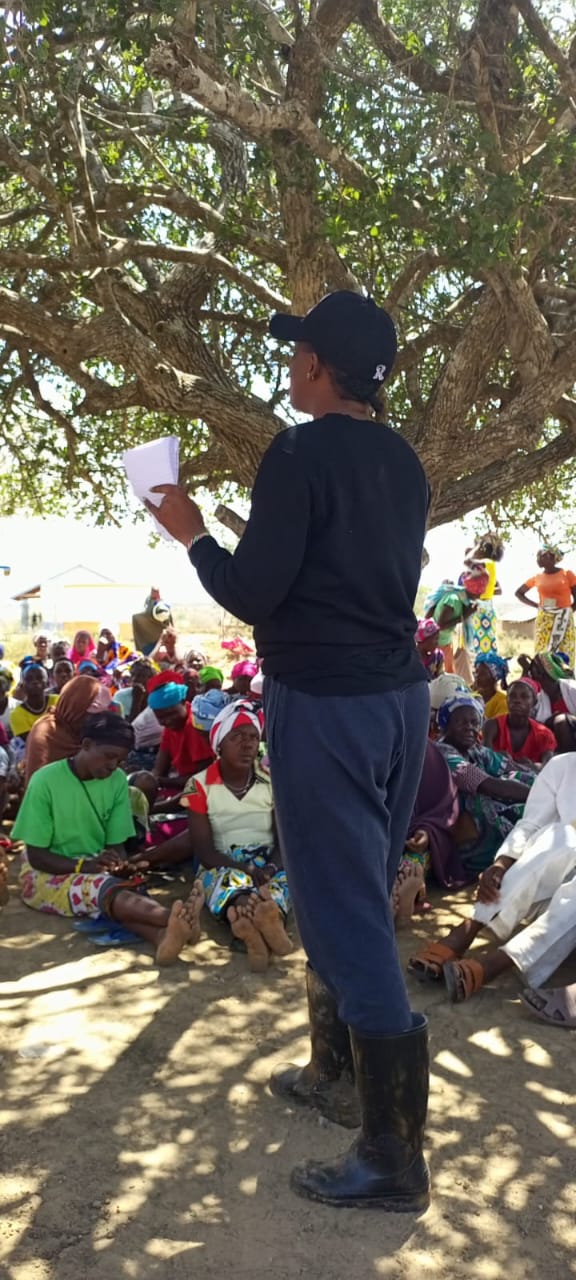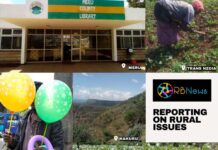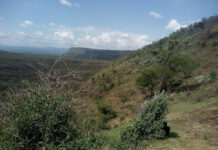By Sefu Sabila, DevReporter, Trans Nzoia

Key Highlights
- There is a threat to the agricultural sector in Trans Nzoia, as youth are moving to the Jua Kali sector
- According to the youth, lack of opportunities and jobs is among the challenges leading to their mass movement from Agriculture
- This move threatens the sector
- Agronomist Esther Nanjala, advocates for the government to focus on supporting youth in agriculture
Trans Nzoia County, this agriculture based county, is currently experiencing threatening competition from the bodaboda sector.
Bodaboda is a crucial mode of transport in Kitale town. With a vast network across the country, the sector acts as an immediate source of employment for many Kenyan youth.
After secondary education, majority of youth venture into the bodaboda business as an immediate form of employment, even as they wait to join tertiary institutions.
Most of the youth have zero experience, but hit the road for a source of living, while others join the business to help them earn and save towards their future plans.
Why Kenyan youths prefer bodaboda business
“We cannot overlook the role played by the bodaboda sector in the country. Many youth take up bodaboda riding as an immediate source of employment. It is a sector that has contributed immensely to the country’s economy,” said Thomas Oloo, a police officer in Kitale.
Bernard Isundu, a graduate of Agricultural engineering, left the agricultural sector after he found an opportunity as a bodaboda in Kitale.
“There are no jobs and no internship opportunities within the sector, it is a nightmare! When my boss approached me for this opportunity (bodaboda rider) that demands for few skills, I grabbed it. Now I’m able to cater for my daily needs,” Isundu stated.
Bernard Isundu further intimated to Radiobaraza.org that despite training in the field of agriculture, he found it tough to support himself in the sector.
“After school, I tried applying for government based funds. The process is overwhelming with too many protocols to follow. Sadly, many farmers now see us as the new generation that hates agriculture, yet they also find it very difficult to accept our expertise and knowledge in the field despite our education,” Isundu explained.
The impact to Kenya’s attainment of SDG Goal Two
With youth like Isundu leaving agriculture for the Juakali Sector, this not only threatens the country’s food security, but also the possibility of achieving the second goal of Sustainable Development Goals (SDG) and Kenya’s vision 2030.
According to the United Nations Department of Economic and Social Affairs, SDG 2 aims to end hunger, achieve food security and improved nutrition.
It further recognizes the importance of supporting sustainable agriculture through empowering small farmers, ending rural poverty as well as ensuring healthy lifestyles.
Additionally, this mass movement from the agricultural sector threatens the progress towards ending poverty and hunger, as it impairs efforts to boost food production and agriculture as sustainable sources of income.
In May 2024, President William Ruto announced the government’s commitment to boosting sustainable agriculture. This includes developing digital agricultural methods, as well as providing subsidized fertilisers to farmers.
Why the move to Juakali will affect agriculture
According to Esther Nanjala, an agronomist, the shift to the Juakali Sector will have a huge impact in agriculture including decline and stagnation in productivity.
Secondly, there will be a shortage in agricultural labour offered by the youth, leading to continued cycle of poverty in families.
“It will be difficult to end the cycle of poverty in families that depend on agriculture, as there will be low productivity and an unstable income flow,” Nanjala explained.
By Sefu Sabila, DevReporter, Trans Nzoia
Key Highlights
- There is a threat to the agricultural sector in Trans Nzoia, as youth are moving to the Jua Kali sector
- According to the youth, lack of opportunities and jobs is among the challenges leading to their mass movement from Agriculture
- This move threatens the sector
- Agronomist Esther Nanjala advocates for the government to focus on supporting youth in agriculture
Trans Nzoia County, this agriculture based county, is currently experiencing threatening competition from the bodaboda sector.
Bodaboda is a crucial mode of transport in Kitale town. With a vast network across the country, the sector acts as an immediate source of employment for many Kenyan youth.
After secondary education, majority of youth venture into the bodaboda business as an immediate form of employment, even as they wait to join tertiary institutions.
Most of the youth have zero experience, but hit the road for a source of living, while others join the business to help them earn and save towards their future plans.
Why Kenyan youths prefer bodaboda business
“We cannot overlook the role played by the bodaboda sector in the country. Many youth take up bodaboda riding as an immediate source of employment. It is a sector that has contributed immensely to the country’s economy,” said Thomas Oloo, a police officer in Kitale.
Bernard Isundu, a graduate of Agricultural engineering, left the agricultural sector after he found an opportunity as a bodaboda in Kitale.
“There are no jobs and no internship opportunities within the sector, it is a nightmare! When my boss approached me for this opportunity (bodaboda rider) that demands for few skills, I grabbed it. Now I’m able to cater for my daily needs,” Isundu stated.
Bernard Isundu further intimated to Radiobaraza.org that despite training in the field of agriculture, he found it tough to support himself in the sector.
“After school, I tried applying for government based funds. The process is overwhelming with too many protocols to follow. Sadly, many farmers now see us as the new generation that hates agriculture, yet they also find it very difficult to accept our expertise and knowledge in the field despite our education,” Isundu explained.
The impact to Kenya’s attainment of SDG Goal Two
With youth like Isundu leaving agriculture for the Juakali Sector, this not only threatens the country’s food security, but also the possibility of achieving the second goal of Sustainable Development Goals (SDG) and Kenya’s vision 2030.
According to the United Nations Department of Economic and Social Affairs, SDG 2 aims to end hunger, achieve food security and improved nutrition.
It further recognizes the importance of supporting sustainable agriculture through empowering small farmers, ending rural poverty as well as ensuring healthy lifestyles.
Additionally, this mass movement from the agricultural sector threatens the progress towards ending poverty and hunger, as it impairs efforts to boost food production and agriculture as sustainable sources of income.
In May 2024, President William Ruto announced the government’s commitment to boosting sustainable agriculture. This includes developing digital agricultural methods, as well as providing subsidized fertilisers to farmers.
Why the move to Juakali will affect agriculture
According to Esther Nanjala, an agronomist, the shift to the Juakali Sector will have a huge impact in agriculture including decline and stagnation in productivity.
Secondly, there will be a shortage in agricultural labour offered by the youth, leading to continued cycle of poverty in families.
“It will be difficult to end the cycle of poverty in families that depend on agriculture, as there will be low productivity and an unstable income flow,” Nanjala explained.






